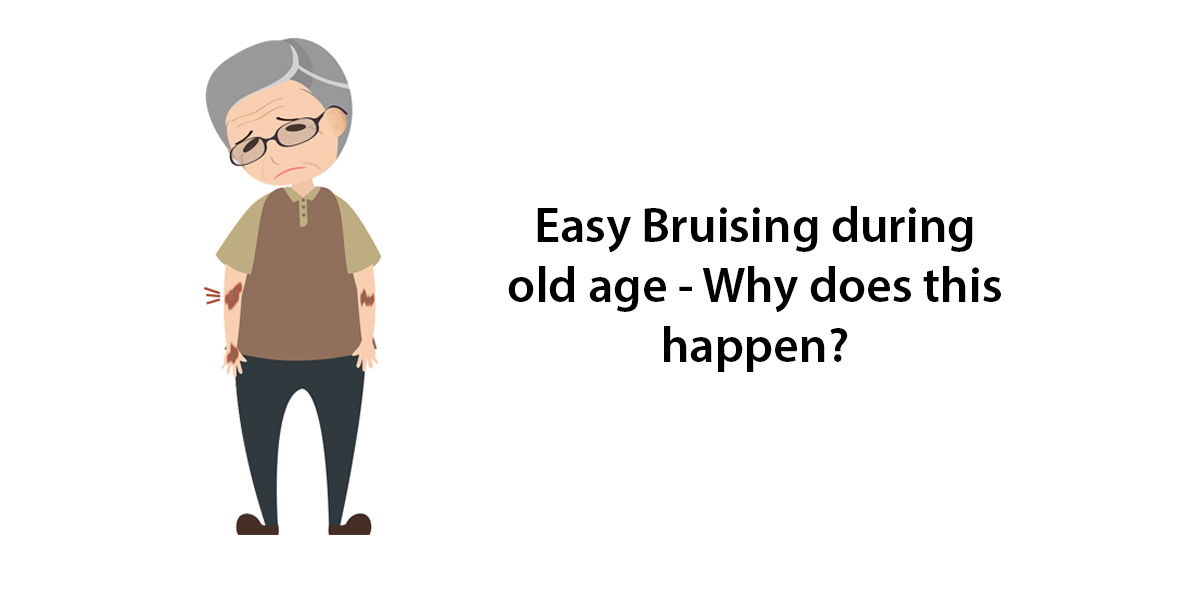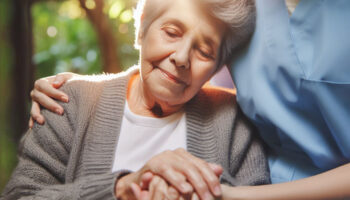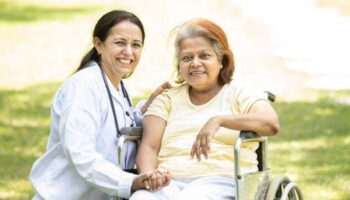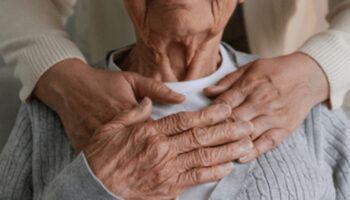Bruising in elders happens to be a common concern though apparently, they may not recollect episodes of tripping, falling or bumping. Often, these bruises tend to darken and become more prominent without symptoms of soreness or pain. Many seniors also develop large bruises even from minor injuries. These scars may take a long duration to heal and disappear.
Bruising may not necessarily imply a serious underlying medical condition. However, a sudden increase in the number of bruises, family history or development of any related complication including bleeding warrants clinical intervention. It is noticed that older adults who undergo medical procedures or need assistance for their daily living activities tend to have more bruises, especially in the arms and legs. Therefore, skilled nursing care is recommended to touch and lift such seniors as they need physical assistance for routines like dressing, bathing or changing positions. Reliable assisted living facilities like Athulya Living provide this support of holistic and integrated senior care in a homely atmosphere. Their skilled professionals assist the fragile residents in completing the daily tasks with the utmost care and empathy.
Causes of Bruises
Bruises are mostly formed due to the breakage of small blood vessels (capillaries) when there is an impact of a blow or injury. As a result of this, there is leakage of blood leading to the appearance of blue and black marks or bruises. When the body reabsorbs this blood subsequently, the bruises disappear. Some of the other causes of bruising are-
- Dry skin in old age- As the skin gets older, it becomes thinner and drier as it loses the protective subcutaneous fat layer that cushions the blood vessel and prevents injury. This problem is more prominent in women.
- Side effects of Medications-Some medications like blood thinners can cause more bleeding and bruising in elders. Certain other drugs like corticosteroids, herbal medicines and anti-depressants can weaken the blood vessels and even cause inflammation.
- Substance Abuse and Liver Disorders-Abuse of substances like alcohol can increase the risk of liver disorders like cirrhosis. The progression of such diseases stops the production of proteins that aid in blood clotting. Hence the patient witnesses heavy bleeding and excessive bruising.
- Genetic Bleeding Problems-Several genetic diseases like Von Willebrand disease and bleeding disorders like Haemophilia slow down the clotting of blood or inhibit it leading to severe bruising.
- Deficiency of Vitamins-The deficiency of certain vitamins like C and K can slow down the healing process and cause bleeding or bruises easily. Vitamin D deficiency in seniors reduces the absorption of calcium in the body making the bones brittle and creates muscular weakness. This in turn can increase the risk of falls leading to injuries and bruises.
- Blood Vessel Diseases-There are a group of conditions that can increase blood vessel inflammation called vasculitis. This disease not only causes bleeding and bruising but can also lead to symptoms of numbness, shortness of breath, skin lumps and purpling.
- Skin ailments- A skin problem called senile purpura can affect old people creating purplish-red lesions in the skin of arms and hands. These symptoms are further aggravated by injury or sunlight.
- Life-threatening Diseases-Certaintypes ofmalignancy like leukaemia that attacks the blood and bone marrow can lead to sudden bleeding and bruising without any physical injury.
Besides, unexplainable bruises at abnormal locations of the body could also be suggestive of elderly abuse.
Preventing Bruises
- Senior living spaces must be kept clutter-free and well-lit by the removal of obstacles.
- Mobility aids like canes and walkers can be used for support.
- Anti-skidding mats and grab bars must be placed in common areas including bathrooms.
- Periodic eye and ear check-ups are recommended to rule out vision and hearing problems that can result in accidents and falls.
- Sufficient care must be given to keep the skin healthy.
Skin Care for Seniors
- Wear protective clothing and use sunscreen lotions when you step outside particularly during the hot days.
- Avoid prolonged exposure to direct sun rays.
- Eat healthy foods like fresh vegetables and fruits regularly.
- Take the necessary health supplements after consulting the physician especially if you are suffering from vitamin deficiencies.
- Use moisturizers to prevent dry skin.
- Drink sufficient water and other healthy beverages to protect the skin from wrinkling and aging.





